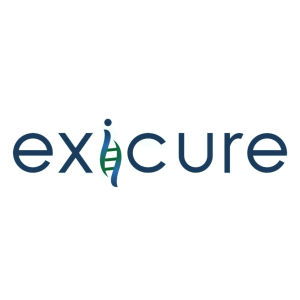Spherical Nucleic Acid Technology Shows Promising Results in Phase 0 Trial in Patients With Glioblastoma at Northwestern University
Exicure, Inc. (NASDAQ: XCUR), a pioneer in gene regulatory and immunotherapeutic drugs utilizing spherical nucleic acid (SNA™) technology, is pleased to share that researchers at Northwestern University have utilized Exicure’s licensed first generation gold-nanoparticle SNA technology in an investigator-initiated trial for the treatment of glioblastoma (GBM), a deadly form of brain cancer.
The results were published in an article in Science Translational Medicine. https://stm.sciencemag.org/content/13/584/eabb3945 DOI:10.1126/scitranslmed.abb3945
The researchers that led the study, Drs. Priya Kumthekar and Alexander Stegh, conducted a single-arm, open-label phase 0 first-in-human clinical trial (NCT03020017) to determine safety, pharmacokinetics, intratumoral accumulation and gene-suppressive activity of systemically administered SNAs comprised of siRNA specific for the GBM oncogene Bcl2L12. Patients with recurrent GBM were treated with intravenous administration of siBcl2L12-SNAs (NU-0129).
The paper reports first-in-human evidence that siRNA-based SNAs can be administered intravenously, cross the blood-brain-barrier in glioblastoma patients, accumulate in GBM tumor cells, and engage with their target gene.
“We congratulate Drs. Kumthekar and Stegh on these results,” said Dr. David Giljohann, the CEO of Exicure. He added, “We are excited about the impact to patients and its implications in treating other diseases, as Exicure continues to build and grow our pipeline in neurological disorders.”
Exicure anticipates filing an IND for its lead program in Friedreich’s ataxia by the end of 2021.
About Glioblastoma
Glioblastoma (GBM) is the most common and most aggressive type of primary malignant tumor of the central nervous system. The global incidence of glioblastoma is less than 10 per 100,000 people. Standard treatment for patients with newly diagnosed glioblastoma can include surgery followed by radiation and chemotherapy, but treatment options are limited. The last investigational medicine to improve survival for patients with newly diagnosed glioblastoma was approved by the U.S. Food and Drug Administration in 2005. The five-year survival rate of patients with GBM is less than five percent.
About Friedreich’s Ataxia
Friedreich’s ataxia (FA) is the most commonly inherited ataxia, a degenerative neuromuscular disease leading to progressive loss of coordination, causing severe childhood disability and early mortality, in most cases before age 40. It is a monogenic disorder caused by mutations in the FXN gene resulting in reduced levels of frataxin protein. FA affects about 13,500 people in the US, Europe, Canada and Australia combined. There are currently no approved therapies for Friedreich’s ataxia patients.
About Exicure, Inc.
Exicure, Inc. is a clinical-stage biotechnology company developing therapeutics for neurology, immuno-oncology, inflammatory diseases and other genetic disorders based on our proprietary Spherical Nucleic Acid, or SNA technology. Exicure believes that its proprietary SNA architecture has distinct chemical and biological properties that may provide advantages over other nucleic acid therapeutics and may have therapeutic potential to target diseases not typically addressed with other nucleic acid therapeutics. Exicure is in preclinical development of XCUR-FXN a lipid-nanoparticle SNA–based therapeutic candidate, for the intrathecal treatment of Friedreich’s ataxia (FA). Exicure's therapeutic candidate cavrotolimod (AST-008) is in a Phase 1b/2 clinical trial in patients with advanced solid tumors. Exicure is based in Chicago, IL and in Cambridge, MA.
For more information, visit Exicure’s website at www.exicuretx.com.
Forward Looking Statements
This press release contains forward-looking statements within the meaning of the Private Securities Litigation Reform Act of 1995. All statements in this press release other than statements of historical fact could be deemed forward looking including, but not limited to, the initiation, timing and results of the Company’s preclinical studies and clinical trials, including its lead program in Friedreich’s ataxia; and the potential of the Company’s SNA technology to provide therapeutic benefit to target diseases, including its ability to address the genetic challenges posed by Friedreich’s ataxia and other neurological conditions. The forward-looking statements in this press release speak only as of the date of this press release, and the Company undertakes no obligation to update these forward-looking statements. Forward-looking statements are based on management’s current beliefs and assumptions that are subject to risks and uncertainties and are not guarantees of future performance. Actual results could differ materially from those contained in any forward-looking statement as a result of various factors, including, without limitation: the risks that the ongoing coronavirus disease 2019, or COVID-19, pandemic or its impact or effects may disrupt the Company’s business and/or the global healthcare system (including its supply chain) more severely than it has to date or more severely than anticipated; unexpected costs, charges or expenses that reduce the Company’s capital resources; the Company’s preclinical or clinical programs do not advance or result in approved products on a timely or cost effective basis or at all; the cost, timing and results of clinical trials; that many drug candidates do not beco







